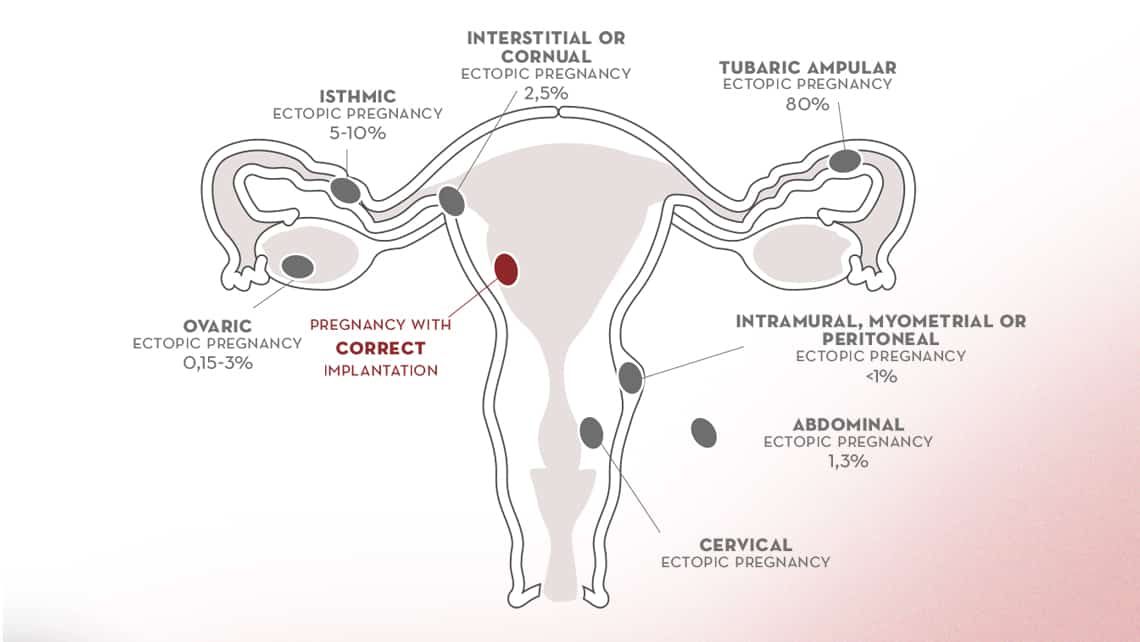
Endometriosis and Ectopic Pregnancy: A Comprehensive Overview
Introduction
Endometriosis and ectopic pregnancy are two distinct gynecological conditions that can significantly impact a woman’s reproductive health. While they share some similarities, their underlying causes, symptoms, and treatment approaches differ substantially. This article aims to provide a comprehensive overview of both endometriosis and ectopic pregnancy, exploring their epidemiology, pathophysiology, clinical manifestations, diagnostic criteria, and management strategies.
Endometriosis
Definition and Epidemiology
Endometriosis is a chronic condition characterized by the presence of endometrial tissue (the tissue that lines the uterus) outside the uterine cavity. It is a common gynecological disorder, affecting approximately 10% of women of reproductive age.
Pathophysiology
The exact cause of endometriosis is unknown, but several theories have been proposed. The most widely accepted theory is the retrograde menstruation theory, which suggests that during menstruation, endometrial cells flow back through the fallopian tubes into the pelvic cavity. These cells can then implant and grow on various organs, including the ovaries, fallopian tubes, pelvic peritoneum, and bowel.
Clinical Manifestations
The symptoms of endometriosis can vary depending on the location and extent of the implants. Common symptoms include:
- Pelvic pain (especially during menstruation)
- Infertility
- Heavy or irregular menstrual bleeding
- Painful intercourse
- Bowel or urinary symptoms (if implants involve the bowel or bladder)
Diagnosis
The diagnosis of endometriosis is often challenging due to its variable presentation. A thorough medical history and physical examination are essential. Transvaginal ultrasound and magnetic resonance imaging (MRI) can help visualize endometrial implants. Laparoscopy, a surgical procedure that allows direct visualization of the pelvic organs, is considered the gold standard for diagnosing endometriosis.
Treatment
The treatment of endometriosis depends on the severity of symptoms and the patient’s desire for fertility. Medical management options include hormonal therapies (e.g., oral contraceptives, progestins, GnRH agonists) to suppress endometrial growth. Surgical treatment involves laparoscopic excision or ablation of endometrial implants.
Ectopic Pregnancy
Definition and Epidemiology
An ectopic pregnancy occurs when a fertilized egg implants outside the uterine cavity, most commonly in the fallopian tube. It is a life-threatening condition that requires prompt medical attention. Ectopic pregnancies account for approximately 2% of all pregnancies.
Pathophysiology
The exact cause of ectopic pregnancy is often unknown. Risk factors include a history of pelvic inflammatory disease, previous ectopic pregnancy, and use of assisted reproductive technologies.
Clinical Manifestations
Symptoms of ectopic pregnancy can include:
- Abdominal pain (especially on one side)
- Vaginal bleeding (irregular or spotting)
- Missed menstrual period
- Nausea and vomiting
- Shoulder pain (if the ectopic pregnancy ruptures)
Diagnosis
Early diagnosis of ectopic pregnancy is crucial to prevent life-threatening complications. A transvaginal ultrasound can help visualize the location of the pregnancy. Blood tests to measure human chorionic gonadotropin (hCG) levels can also be helpful in making a diagnosis.
Treatment
Treatment for ectopic pregnancy typically involves surgical intervention. Laparoscopic or open surgery is performed to remove the ectopic pregnancy and repair any damaged tissue. In some cases, medical management with methotrexate, a chemotherapy drug, may be an option.
Relationship between Endometriosis and Ectopic Pregnancy
Endometriosis and ectopic pregnancy are both associated with abnormal implantation of endometrial tissue. However, the relationship between the two conditions is complex and not fully understood. Some studies suggest that women with endometriosis have an increased risk of ectopic pregnancy, while others have found no such association.
Management of Endometriosis and Ectopic Pregnancy
The management of endometriosis and ectopic pregnancy requires a multidisciplinary approach involving gynecologists, surgeons, and other healthcare professionals. The primary goals of treatment are to alleviate symptoms, preserve fertility, and prevent life-threatening complications.
Prevention
There is no definitive way to prevent endometriosis or ectopic pregnancy. However, certain lifestyle factors and medical interventions may reduce the risk of these conditions:
- Regular exercise
- Maintaining a healthy weight
- Avoiding smoking
- Using barrier contraception
- Seeking early treatment for pelvic infections
Conclusion
Endometriosis and ectopic pregnancy are two distinct gynecological conditions with significant implications for women’s reproductive health. Understanding their epidemiology, pathophysiology, clinical manifestations, diagnostic criteria, and management strategies is essential for providing optimal care to affected individuals. Further research is needed to elucidate the relationship between these conditions and to develop more effective prevention and treatment strategies.